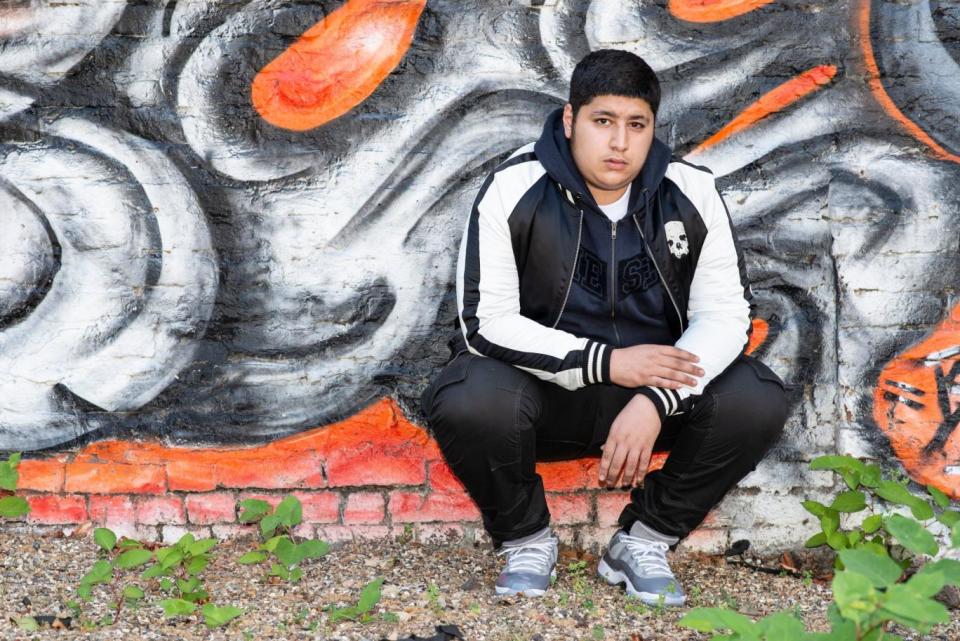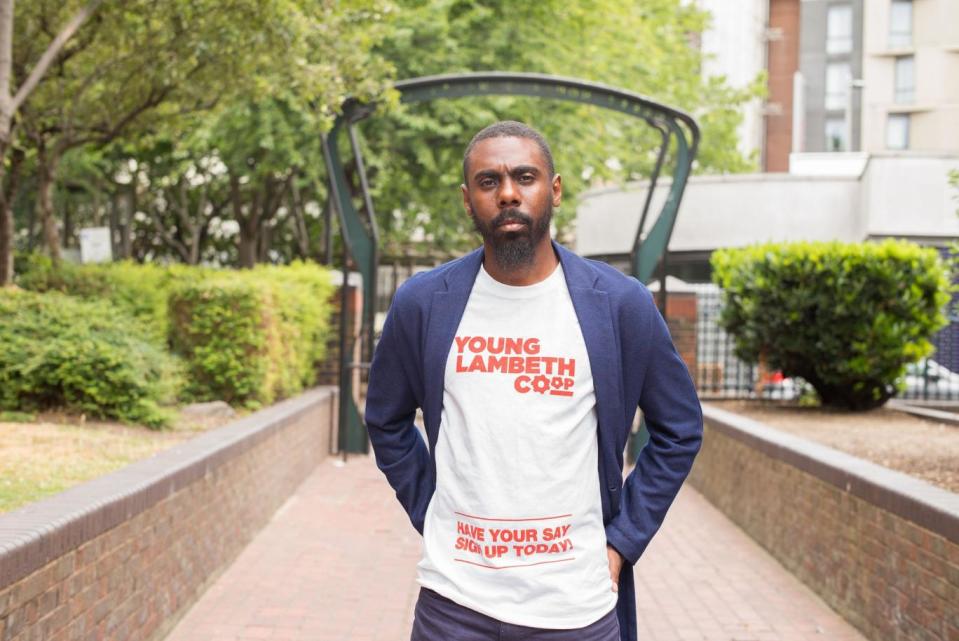Violent London: Teen who witnessed fatal shooting aged 7 says gun and knife crime is 'normalised' on capital's estates

Ahmed Riane was seven when he walked out of his flat on the Loughborough estate in Brixton and saw a teenager shoot another teenager dead, right in front of his eyes.
He saw the gun fire, he saw the blood. Then he ran as fast as his legs could carry him back inside the block, back inside his flat on the first floor. He shut the door and stayed there, out of breath, puffing, terrified at what he had just witnessed.
When Ahmed was 12, the violence encroached even closer . One of his best friends, Junior Nkwelle, 15, was fatally stabbed on their estate over a petty argument. Ahmed and his friends were devastated.
By 16, many of his core group started getting arrested for drugs and carrying knives. Two would be sent to prison. By 18, Ahmed’s world was one, he said, in which “stabbing, shooting and criminality had become normalised”.
Yet Ahmed, now 19, has never been arrested and has no criminal record. While those around him were dropping out of school, dealing drugs and stashing blades down their boxers, Ahmed knuckled down and got nine good GCSEs. This summer he sat A-levels and has secured a place at university. His dream, “to become a brilliant civil engineer”, is still on course and intact.
How did Ahmed do it? How did he forge the resilience to resist the recidivist culture around him? He ascribes it to two things — his parents and his youth worker.
He said: “All my friends carry knives but I don’t carry. Why? Because I need to make my dad proud. He is a hard-working black-cab driver and he expects me to be an example to my younger siblings and my friends.
"Out of all my friends, I am known as the smart one. I’m smart academically and I make good choices. Both ways I’m smart.”

But it’s when Ahmed talks about Karim Abdullah, his youth worker at Young Lambeth Cooperative charity, that the sense of how easily his life could have taken a different trajectory becomes clear.
There have been several critical junctures in Ahmed’s life when Karim has been there to defuse conflicts that could have ended in bloodshed. Karim, 32, is what the public health model calls a “violence interrupter”.
Although he would never give himself such a grandiose title — “youth worker will do”, he said — he is nevertheless a huge advocate of the public health model, the trauma-informed approach to tackling youth violence that is backed by the Evening Standard and was recommended by the cross-party Youth Violence Commission in their interim report published last week.

Young Lambeth Cooperative works with high-risk youths, those in gangs and those on the periphery, and they and frontline charities like them are almost the only ones that have the credibility needed to intervene and prevent violence on the estates of London.
The new £400,000 fund we have announced today — the Save London Lives Fund backed by hard cash from the Evening Standard Dispossessed Fund — will provide grants of up to £20,000 to grassroots charities that empower key workers such as Karim to protect the lives of at-risk teenagers such as Ahmed — and to turn them into positive influencers of others.
Two key moments stand out where Karim’s presence made the difference, Ahmed told me, when I met up with him and Karim at YLC’s basement office under Brixton Library. “I was on a day trip out of Lambeth with 10 friends from my youth club and Karim was in charge, and we were just leaving an entertainment venue in Finchley when suddenly a group of older teenagers started following us,” said Ahmed.
“I was 13 at the time and for some reason my 11-year-old brother got detached from our group and then someone said one of them had just slapped my younger brother in the face. I found my brother, saw his face was red and immediately got angry and stormed towards the other group.
“I wasn’t thinking that these boys were bigger than me and older, that they might be carrying knives, that they might stab and kill me. The only thing I cared about was that, on my estate, a slap is a violation, that nobody touches my little brother and gets away with it.” It was at this moment that Karim placed himself between Ahmed and the group.
“I calmed Ahmed down,” said Karim, picking up the story. “Then I ushered our group up the road but the other youngsters kept following us so I went to speak to them. They were angry and wanted to know, ‘who these kids coming into our area?’
“Our kids were bristling, ready to retaliate, but they were a long way from home. I had to speak to both sides about de-escalating but when one of their main aggressors wouldn’t listen, I had to hold him very firmly and talk some sense into him. And then we crossed the road and I put our youngsters on the bus and we got the hell out of there.”
The second occasion was when Ahmed was 14 and his bicycle was stolen by an older, bigger kid. Ahmed was outraged and decided he was going to get it back. He thought about confronting the thief but Karim’s voice was in his ear. So instead of risking a fight and creating more “pagans” [enemies], he decided to ask Karim to come with him. “Karim got my bike back for me, nice and smooth,” he smiled. “Karim is somebody I can speak to about any problem — girls, drugs, staying safe, peer pressure. If Karim hadn’t been there, I could have been seriously hurt.”
Of all his problems, peer pressure has been the hardest to resist, said Ahmed. “One of my best friends has been arrested for carrying a knife many times and I was seen as a nerd for not carrying, but instead of him influencing me to do badness, Karim got me to influence him. Since then my friend has put down the knife and he’s making music. He’s very talented. I am the friend who makes him think. I am like his conscience. Whenever he gets angry and wants to do badness, I remind him that there’s a different way. Karim’s voice goes into my ear and from my ear to my mouth and into his ear. So it’s a positive cycle.” Karim was realistic. “Look, where Ahmed lives is not leafy West Dulwich, it can be a toxic violent hotspot. My job is to help young people like him make smarter choices, but I am not always successful. Ahmed is a good news story.
“Seeing somebody shot, losing his best friend, he could easily have become an avenger.” Ahmed looked thoughtful. “Looking back, my choice was this: I could have got stabbed in a moment of hot-blooded madness or I could go to university and realise my dream. It seems an obvious choice looking back. But without Karim, I could have been sucked in. I could have been the big man defending my brother’s honour. I could have gone in a very different direction.”

 Yahoo News
Yahoo News 
